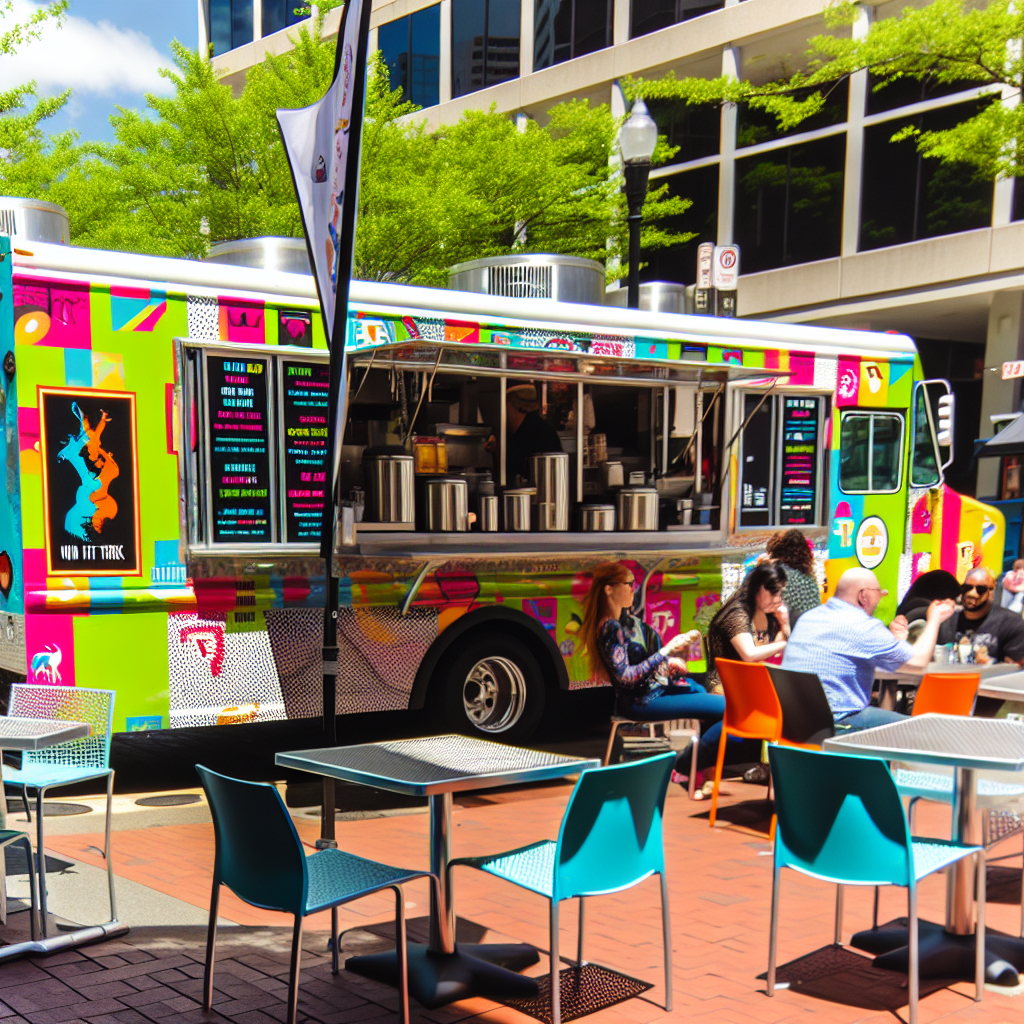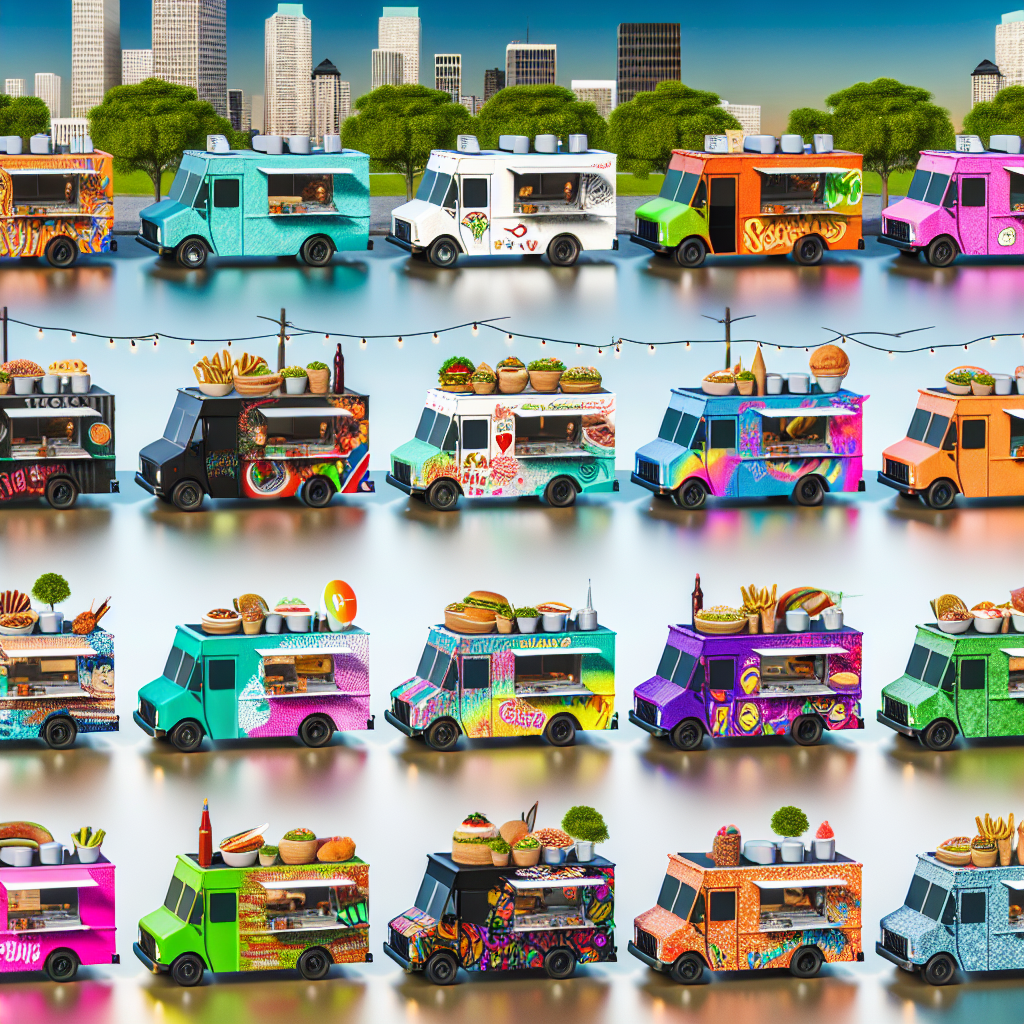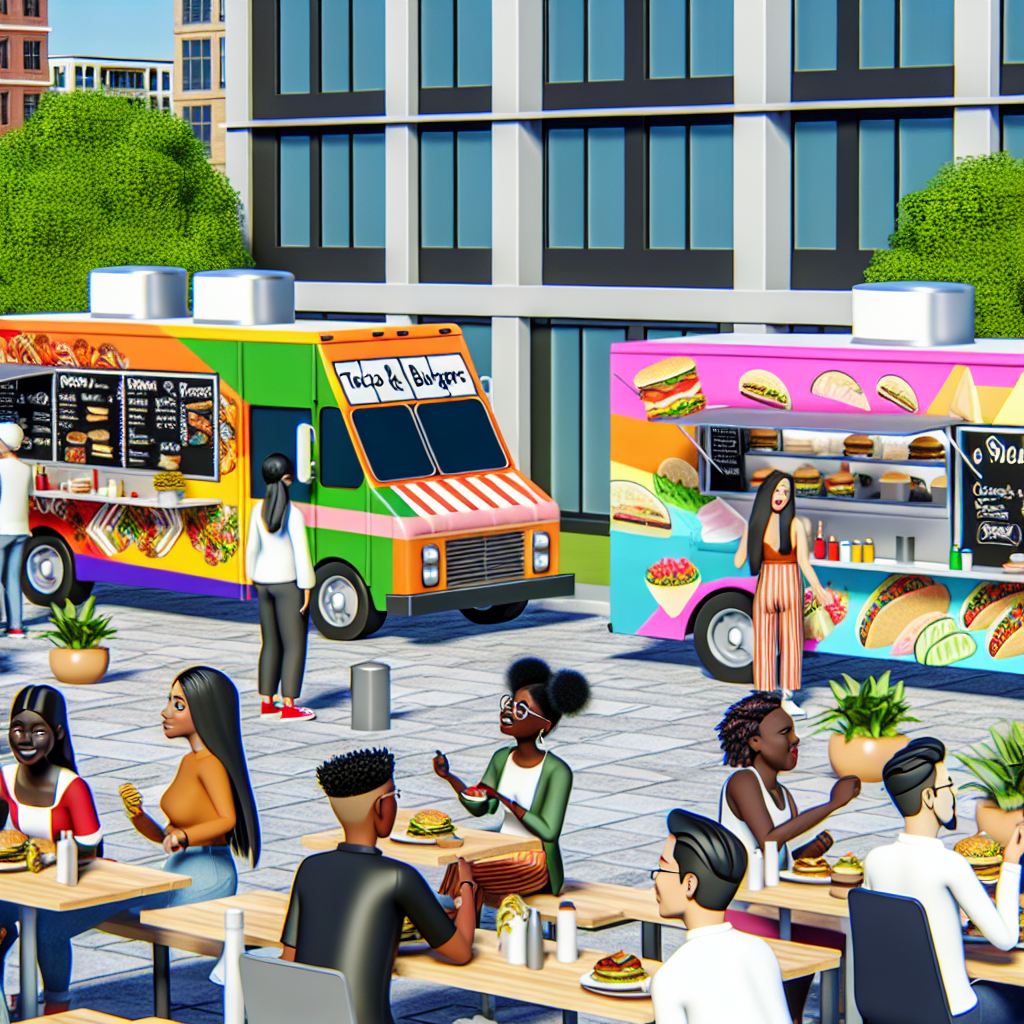In recent years, food trucks have surged in popularity, transforming not only how we perceive mobile dining but also creating a bustling market for aspiring entrepreneurs. With this growth, the opportunity for food truck owners to capitalize on their investments has never been greater. However, to truly maximize resale value, it is essential to think beyond basic functionality; enhancing and personalizing your food truck can significantly boost its appeal to potential buyers.
In this article, we will explore practical tips and insights on upgrading your food truck, helping you to not only enjoy your culinary adventure but also ensure a profitable exit when the time comes to sell. Get ready to discover how thoughtful improvements can elevate your business and secure a higher payoff in the future.
Understanding the Resale Value of Food Trucks
Understanding the factors influencing the resale value of your food truck is crucial for maximizing your investment. This section will break down key aspects to consider:
How to Estimate Your Food Truck’s Value
To begin, it is essential to have a clear estimate of your food truck’s current worth. Factors such as asset-based evaluation, income-based evaluation, and market comparisons should be taken into account.
- Asset-Based Valuation: Assess the total value of the truck, kitchen equipment, and any existing inventory. Deduct outstanding liabilities to get a baseline value.
- Income-Based Valuation: Review your food truck’s financial history for a comprehensive understanding of its earning potential. This includes profit and loss statements and tax returns.
- Market Comparisons: Research recently sold trucks similar to yours through online marketplaces for additional context. This will give you insight into current market conditions.
Key Factors Affecting Resale Value
Several key elements can influence the resale value of your food truck. Here are the primary factors to consider:
- Condition and Maintenance: Well-maintained trucks that meet health regulations tend to retain higher value.
- Customization: Quality upgrades such as kitchen appliances and layouts make your food truck more appealing to buyers.
- Brand Recognition: A strong brand presence can significantly elevate your food truck’s market value.
- Market Trends: Stay informed about trends that may impact your truck’s desirability, such as sustainability practices or new technology.
Upgrading for Enhanced Value
Investing wisely in upgrades not only improves day-to-day operations but can substantially increase your truck’s resale value. Focus on these areas:
- Quality Kitchen Equipment: Energy-efficient appliances and thoughtful layouts attract buyers and enhance efficiency.
- Branding: A cohesive and visually appealing design can enhance your truck’s market presence and perceived value.
- Technology: Incorporate modern solutions like mobile ordering and sophisticated POS systems to streamline operations and appeal to buyers looking for tech-savvy options.
- Sustainability: Implement eco-friendly features that cater to increasing consumer preferences for sustainable businesses.
Final Thoughts on Ensuring Good Resale Value
In conclusion, understanding and enhancing your food truck’s resale value involves clear estimation, awareness of influencing factors, and thoughtful upgrades. Regularly assess your truck’s condition, keep abreast of market trends, and prioritize strategic investments. By doing so, you can ensure your food truck does not only perform well operationally but also holds substantial value for a profitable future sale.
Assessing Current Truck Value
Accurately assessing the current market value of your food truck is essential whether you’re considering upgrades or planning to sell. Here’s how to navigate this process:
- Asset-Based Valuation: Begin by calculating the total value of your food truck’s tangible assets. This includes the vehicle itself, kitchen equipment, and any inventory you may have. Subtract any outstanding liabilities to get an initial baseline value. This approach is straightforward but may not fully reflect the earning potential of your business.
- Income-Based Valuation: Analyze your food truck’s financial history. Review profit and loss statements, balance sheets, and tax returns from the past few years. This method reflects how much money your food truck has brought in and can provide a more comprehensive value based on profitability.
- Market Comparisons: Look at similar food trucks that have been recently sold in your area. Online marketplaces specializing in food trucks and industry networking can provide vital insights for making these comparisons. Connecting with other food truck owners at festivals and local business events can help you gauge current market conditions.
Where to Find Comparables:
- Online Marketplaces: Websites listing food trucks for sale often display sale prices and features of similar vehicles.
- Professional Appraisers: Engaging a valuation expert can clarify your truck’s market worth, considering current trends and enhancing your understanding of the market.
Importance Before Making Upgrades
Knowing your food truck’s market value is crucial before committing to upgrades. By assessing your current worth, you can prioritize improvements that will yield the highest return on investment. Over-improving your truck beyond its resale potential can result in financial losses, making this knowledge invaluable.
Factors affecting the resale value of food trucks include:
- Condition and Maintenance: Vehicles that are well-maintained and compliant with regulatory standards retain more value.
- Customization: High-quality kitchen appliances and adaptable layouts increase desirability.
- Brand and Reputation: A memorable brand presence can elevate your truck’s market value, especially with a loyal customer base.
- Market Trends: The food truck industry’s growth, driven by diversification and sustainability, can influence how potential buyers perceive value.
By staying informed about industry trends and employing a strategic approach to valuation, food truck operators can make sound decisions that positively impact both current operations and future resale options.
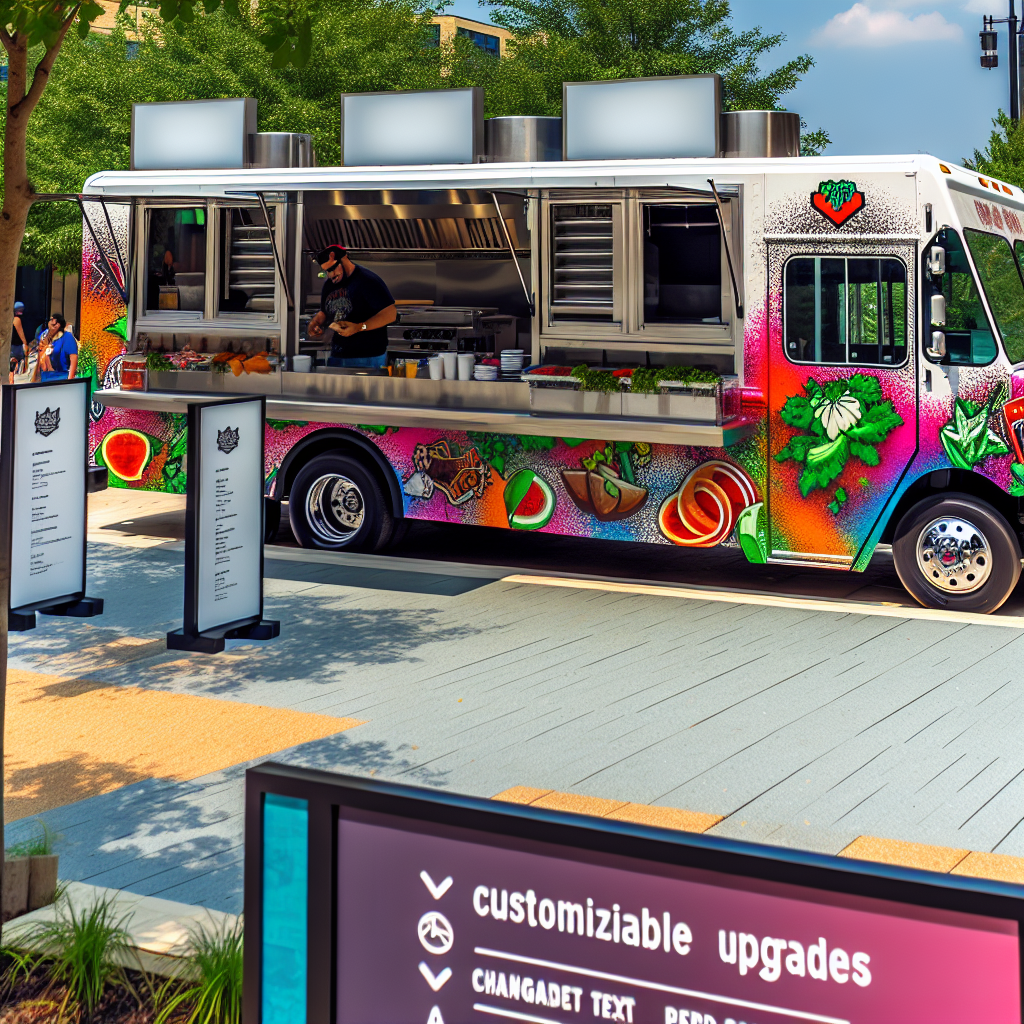
An image showcasing a vibrant and modern food truck with various upgrades and personalization options.
| Upgrade | Estimated Cost | Impact on Resale Value | Customer Appeal |
|---|---|---|---|
| Stainless Steel Appliances | $3,000 – $10,000 | High | Very High |
| Wrap or Paint Job | $2,000 – $5,000 | Medium | High |
| Upgraded Lighting | $1,000 – $3,000 | Low | Medium |
| Efficient Kitchen Layout | $4,000 – $8,000 | High | Very High |
| Point of Sale System | $500 – $2,000 | Medium | High |
| Outdoor Seating Area | $1,500 – $4,500 | Medium | High |
Popular Upgrade Options for Food Trucks
Upgrading a food truck with strategic enhancements can significantly boost its resale value and appeal to potential buyers. Key areas to focus on include:
-
Kitchen Equipment and Layout
Investing in high-quality, energy-efficient appliances and optimizing the kitchen layout enhances operational efficiency and attracts buyers seeking a ready-to-operate setup. Modular cooking stations, space-saving storage solutions, and multi-use equipment are particularly appealing.
[source] -
Branding and Aesthetic Improvements
A cohesive and eye-catching design serves as a mobile advertisement, drawing customer attention and increasing brand recognition. Consistent branding across the truck’s exterior, menus, and online presence builds trust and can lead to higher resale value. Notably, 80% of food truck operators agree that consistent branding across digital and physical touchpoints builds trust.
[source] -
Technological Integration
Incorporating modern technology, such as digital menu boards, advanced point-of-sale systems, and mobile ordering apps, streamlines operations and enhances the customer experience. These features not only improve efficiency but also make the truck more attractive to tech-savvy buyers.
[source] -
Sustainability Practices
Implementing eco-friendly features like energy-efficient appliances, solar panels, and biodegradable packaging appeals to environmentally conscious consumers and can differentiate the truck in the market. Such practices contribute to a positive brand image and can enhance resale value.
[source] -
Ergonomic Design for Staff Comfort
An ergonomic kitchen design that prioritizes staff comfort and efficiency can lead to smoother operations and higher productivity. Features like adjustable workstations and anti-fatigue mats are attractive to potential buyers who value employee well-being.
[source]
By focusing on these upgrades, food truck owners can enhance their vehicle’s functionality, appeal, and ultimately, its resale value.
In conclusion, upgrading and personalizing your food truck can significantly enhance both your current operations and its resale value. Key takeaways from this article emphasize the importance of making thoughtful enhancements. These include modern kitchen upgrades, effective branding, and integrating technology. By focusing on improvements that align with market trends and buyer preferences, food truck owners can ensure that their investments pay off.
It is also crucial to plan upgrades carefully, considering not only immediate benefits but also their resale potential. Finally, maintaining a well-structured budget is essential to prevent overspending and maximize financial returns. With careful planning, you can create a standout food truck that offers significant value when it’s time to sell.
Budgeting for Upgrades
Effective budgeting is crucial for food truck owners aiming to maximize their investment through meaningful upgrades. Here are some practical strategies to consider:
-
Establish a Clear Budget
Before embarking on any upgrades, determine a clear budget. Factor in your current finances, expected revenue streams, and any potential financing options. A well-thought-out budget helps prioritize spending and prevents overspending on less impactful enhancements.
-
Focus on High-Quality Equipment
Investing in high-quality kitchen equipment and appliances is essential. While initial costs may be higher, durable equipment often results in lower repair costs and improved operational efficiency, leading to higher profitability. For example, a robust setup that costs $10,000 may save you $2,000 annually in repairs, making it a wise long-term investment.
-
Integrate Modern Technology
Digital ordering systems and POS integrations can significantly boost sales. These upgrades not only streamline operations but can also increase average order values by 15 to 30 percent through effective upselling. Look for systems that offer a quick return on investment, ideally paying for themselves within a few months.
-
Enhance Your Branding
Prioritize a strong visual identity by investing in professional graphics for your truck. A solid vehicle wrap might cost around $2,800 but could yield tens of thousands of daily impressions and significantly enhance customer engagement. Improved visibility can lead to revenue doubling shortly after implementation, making it a crucial upgrade for resale value.
-
Build a Growth and Emergency Fund
It’s prudent to set aside 5 to 10 percent of your monthly revenue for future upgrades and unexpected costs. This financial cushion ensures that you are prepared for any unanticipated expenses and allows for continued investment in your food truck business.
-
Monitor Depreciation and Resale Value
Be aware that food trucks typically lose 15 to 25 percent of their value each year. Keep track of your truck’s condition and upgrade any necessary equipment to help maintain its market value. Regular maintenance and timely upgrades can make your food truck more attractive to potential buyers, compensating for depreciation over time.
By implementing these budgeting strategies, food truck owners can enhance their operational efficiency, boost customer appeal, and significantly increase resale value when it’s time to sell.
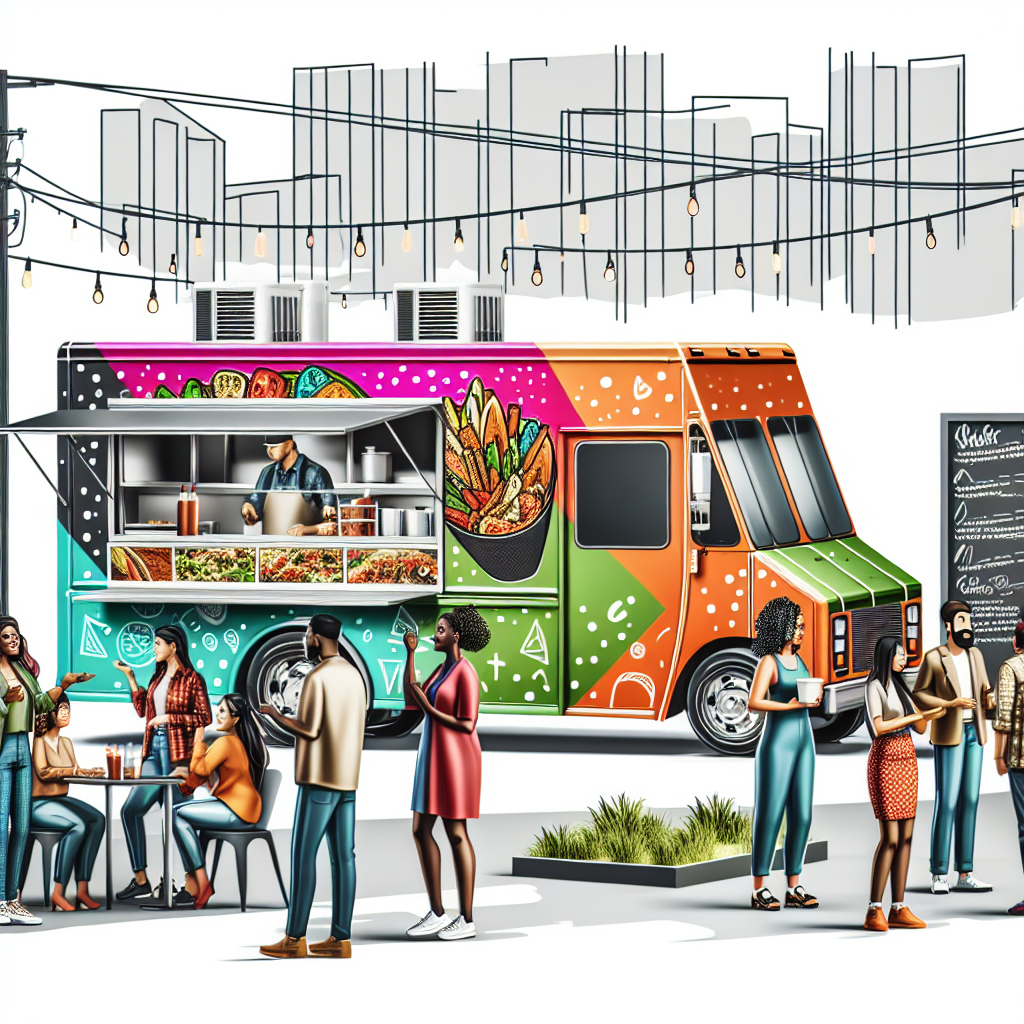
An image showcasing a beautifully designed food truck, showcasing modern aesthetics, vibrant colors, and personalized features, set in a lively street food environment.
Current Market Data on Food Truck Resale Values
Food truck resale values are crucial for owners looking to maximize their investments. Factors influencing resale prices include depreciation rates, market trends, and the impact of various upgrades. Here’s a summary based on recent market data:
-
Depreciation Rates:
- Food trucks generally depreciate by 15-25% each year. In the first year, new trucks may experience a depreciation of 20-25%, followed by 10-15% in subsequent years. Over five years, a food truck can lose between 41-60% of its original value. For example, a truck bought for $100,000 may be worth only $40,000 to $59,000 after five years. [source]
-
Average Resale Prices:
- As of 2025, the average cost for a new food truck is about $108,500, while used trucks average around $46,800. [source]
-
Effects of Upgrades on Resale Value:
- Quality Equipment: Investing in high-quality kitchen appliances can significantly enhance resale values. Reliable equipment not only reduces down time but also increases buyer interest. [source]
- Customization: Uniquely designed trucks that reflect owner identity while optimizing space and workflow can command higher prices in the resale market. [source]
- Sustainability Practices: Incorporating green practices is becoming increasingly appealing for buyers, aligning the truck with current consumer preferences for sustainability. [source]
- Market Trends: The U.S. food truck industry reached revenues of $2.8 billion in 2025, indicating a growing demand that can positively affect resale prices. [source]
- Technological Enhancements: Introducing modern tech solutions like digital ordering and integrated payment systems can boost operational efficiency, which in turn attracts potential buyers. [source]
In summary, while food trucks are subject to considerable depreciation, strategic upgrades in equipment, customization, sustainability, and technology can significantly enhance their market value at resale.
Insights from Industry Experts
Expert opinions on food truck ownership underline the significance of strategic upgrades and financial readiness for maximizing resale value. Here are some key insights:
- Maintenance Matters: A source from BusinessDojo indicates that “well-maintained trucks with updated equipment and strong service records retain value better than neglected vehicles requiring extensive repairs.” This highlights the necessity for food truck owners to stay on top of maintenance and necessary upgrades to keep their investment valuable.
- Brand Recognition: Attorney Aaron Hall mentions that “brand visibility and reputation play a crucial role in the evaluation of a food truck business.” A strong and appealing brand not only draws customers but also increases the resale value of the truck, making its acceptance in the market more favorable.
- Financial Diligence: Aviaan Accounting emphasizes the importance of thorough financial documentation: “we conduct a detailed Quality of Earnings (QoE) analysis to normalize profitability, meticulously verify revenue streams, and review all critical documents.” This approach can prepare food truck owners to negotiate effectively during a sale, ensuring they achieve the best possible return on their investment.
- Quality Construction: According to a source from Overhill Concessions, investing in a well-constructed, durable truck can lead to significant returns by minimizing disruptions and maximizing sales opportunities over time. This suggests a higher initial investment can be worthwhile in the long run.
- Curb Appeal: Strong aesthetics play a significant role in attracting buyers. Hall notes that “enhancing curb appeal through strategic visual branding can significantly attract potential buyers.” A well-maintained exterior signals care, reliability, and longevity in the investment.
By implementing these strategies, food truck owners can effectively position themselves for a higher resale value, ensuring that their business remains a valuable asset in a competitive market.
